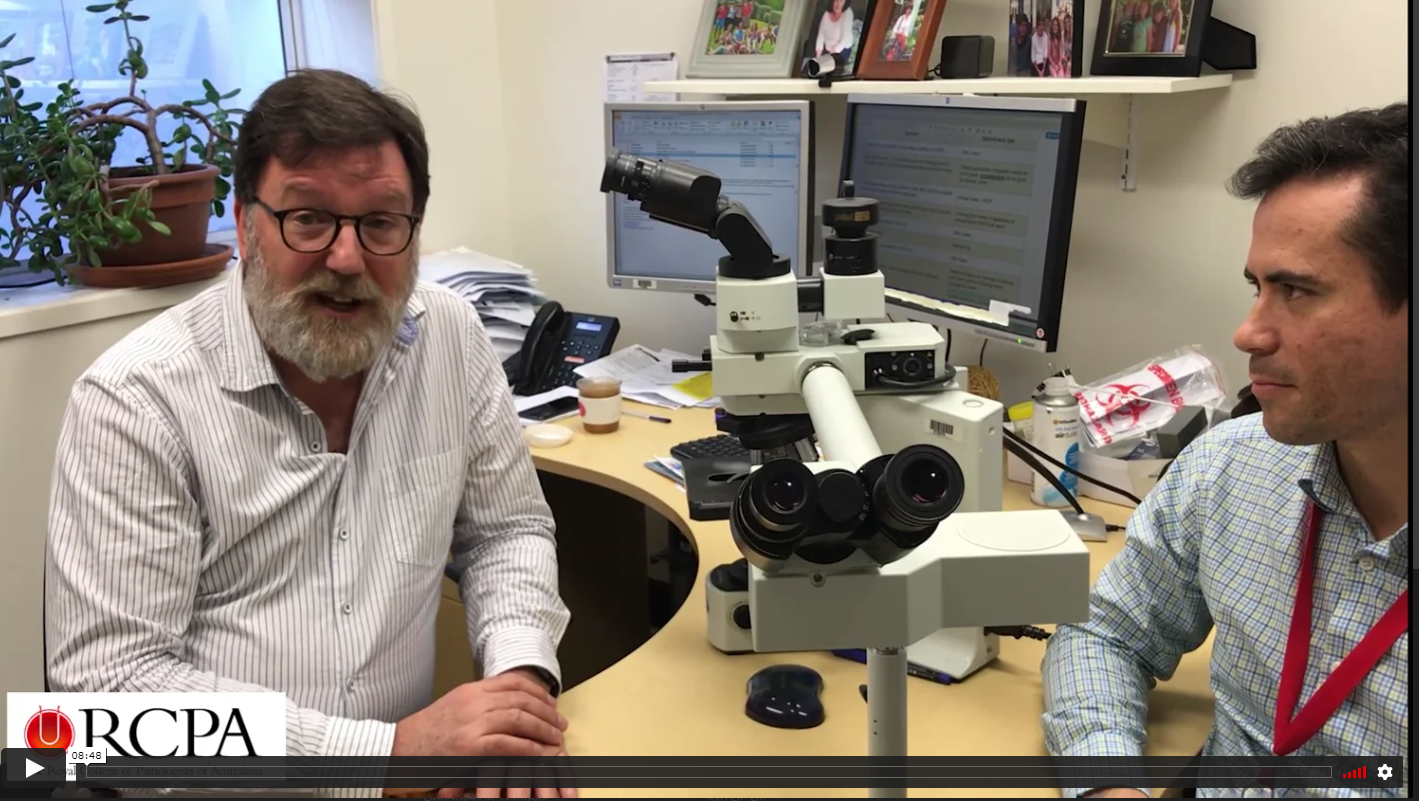The Royal College of Pathologists of Australasia (RCPA)


The Royal College of Pathologists of Australasia (RCPA) Pathology is the study of disease, or any condition that limits the quality, length or enjoyment of life. From the time a new life is created to the time it ends, pathology is involved. Pathology touches every facet of medicine and therefore society.
Pathology offers a fascinating career for doctors and scientists. The information below is designed to give you insight as to what it would be like to to be a pathologist or senior scientist and how you can train to become one.
Bursaries/Scholarships
Funding you can apply for
Medical Students Grants to attend RCPA’s Annual Scientific Meeting Pathology Update
This is an annual Grant open to Aboriginal, Torres Strait Islander and Māori medical students. Several sponsorships are available, which includes return airfares, accommodation and conference registration for the three-day event.
Medical Students Sponsorships to attend RCPA’s New Zealand Annual Scientific Meeting
This Grant is offered annually to Māori medical/science students to attend our New Zealand Annual Scientific Meeting. The Grant includes return airfares, accommodation and conference registration.
Medical Students Scholarship for a project in Pathology
There is an annual scholarship open to one Aboriginal, Torres Strait Islander and Māori medical student. Valued at $2,000, it is offered to a student undertaking the Bachelor of Medicine (or equivalent) degree course for a project associated with pathology.
Supporting Trainees – Mentoring Grant
This Grant is open to Fellows solely to assist the education and training of an Aboriginal and Torres Strait Islander or Māori Trainee. It provides funding to ensure that trainees have access to two mentors. If you are a trainee, RCPA can work with AIDA or TE Ora and you to identify a professional mentor to assist you throughout your training.
Promoting Aboriginal Torre Strait Islander and Māori Health e-Vocational Māori Doctors
The RCPA is proud of our connections with the Aboriginal Indigenous Doctors Association (AIDA) and the Te Ohu Rata o Aotearoa – Māori Medical Practitioners Association (Te ORA), connections we value and support now and into the future.
The RCPA has a Regulation setting out its purposes with respect to the needs of Aboriginal, Torres Strait Islander and Māori People.
RCPA is committed to improving health outcomes for Indigenous patients and their whānau/families. Our commitment is reflected in our pledge to grow and support an Indigenous pathology workforce. This commitment to training more Indigenous pathologists is grounded in principles of quality and excellence as well as college and Medical Council regulations. We recognise and value that Indigenous trainees bring to our college additional skills and expertise such as cultural knowledge, worldviews and understanding of health issues in their respective communities. We pledge to create pathways for Aboriginal, Torres Strait Islander and Māori doctors seeking careers in pathology
There are many benefits to informing RCPA that you identify as an Aboriginal, Torres Strait Islander or Māori doctor. Our Guideline on selection of trainees states that all Aboriginal, Torres Strait Islander or Māori applicants should proceed directly to interview provided that they meet eligibility criteria in terms of medical registration and duration of clinical experience. Also see our Policy on admission to College training programs.
We also work closely with the LIME Network. Aboriginal and Torres Strait Islander doctors considering a career in pathology may find helpful information on their Pathways into Specialisation online resource.
We have an Aboriginal and Torres Strait Islander and Māori Health and Workforce Steering Committee chaired by the RCPA President. The Committee enacts the College’s commitment to achieving health equity for the Indigenous peoples of Australia and Aotearoa New Zealand. The Committee includes representation of Indigenous pathology fellows, trainees and doctors from both Australia and Aotearoa New Zealand.
Training for RCPA
The Royal College of Pathologists of Australasia accredits laboratories for pathology training, approves supervised training undertaken in an accredited laboratory and conducts examinations leading to certification as a qualified pathologist and Fellow of the College (FRCPA).
The College accepts applications from registered medical practitioners with a minimum of two years of post graduate experience, who wish to become a specialist pathologist. Applicants must be employed in an accredited laboratory before seeking registration with the College. Laboratories are accredited for training in Australia, New Zealand, Hong Kong, Singapore, Malaysia and Saudi Arabia. The College plays no part in placing applicants in employment. Pathology training takes a minimum of five years.
Training can be undertaken in General or Clinical Pathology or in one of the single disciplines: Anatomical Pathology, Chemical Pathology, Genetic Pathology, Forensic Pathology, Haematology, Immunopathology or Microbiology.
The College also offers Fellowships of the Faculty of Oral and Maxillofacial Pathology and the Faculty of Science. The Fellowship of the Faculty of Oral and Maxillofacial Pathology is open to both medical and dental practitioners. While the Fellowship of the Faculty of Science is open to both medical practioners and senior scientists. For further information go to the Faculty of Science.
The RCPA training program is linked to training programs of The Royal Australasian College of Physicians in Chemical Pathology, Haematology, Immunopathology and Microbiology. If you choose these disciplines you may choose to undertake conjoint training and attain dual Fellowships of both Colleges.
Training involves 5 years in accredited laboratories and sitting the following 3 exams:
1. BASIC PATHOLOGICAL SCIENCES EXAMINATION:
The examination may be taken before commencement of training. The examination is open to any intern, medical or dental student in their final year as well as registered trainees. It is usually taken in the first year of training.
2. DISCIPLINE SPECIALTY PART I:
This is usually taken in the third year of training.
3. DISCIPLINE SPECIALTY PART II:
This is usually taken in the fifth or final year of training.
For more information: See the Curriculum/Training Handbooks
Want to become a member?
Get in touch, or register now

